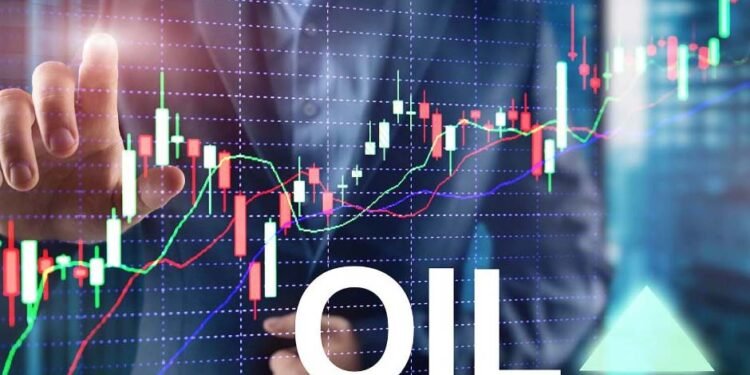The global economy is intricately connected through a complex web of industries, and few sectors wield as much influence as oil trading. Oil, often referred to as “black gold,” serves as the lifeblood of many nations, shaping their economic policies and geopolitical strategies. The significance of oil trading is not confined to financial transactions alone; it extends to the very fabric of global communication.
In the contemporary landscape, understanding the language and communication dynamics of oil trading is imperative. This article delves into the specialized terminology, geopolitical nuances, media narratives, technological advancements, environmental considerations, and future trends that collectively shape the linguistic landscape of the oil trading industry. Additionally, if you want to learn about investments, specifically those related to the oil sector, and companies that can teach them about this topic, consider visiting here.
The Language of Oil Trading
Specialized Terminology and Jargon
The language of oil trading is replete with specialized terminology and jargon, creating a distinct lexicon that sets it apart from other industries. Terms like “Brent crude,” “futures contracts,” and “barrels per day” are commonplace, but their implications extend beyond mere semantics. This unique vocabulary fosters a shared understanding among industry professionals, facilitating efficient and precise communication.
Understanding this specialized language is crucial for effective participation in the oil trading market. The terminology not only serves as a shorthand for complex concepts but also establishes a barrier to entry for those unfamiliar with the intricacies of the industry.
Influence on International Business Communication
The impact of oil trading on international business communication is profound. Negotiations and agreements in the oil industry demand a nuanced understanding of the associated terminology. Cross-cultural challenges further complicate communication, as participants from different linguistic backgrounds navigate the intricacies of the oil market.
International negotiations in the oil sector require diplomats and business leaders to not only be fluent in their native languages but also possess a working knowledge of the industry-specific jargon. Misinterpretation of terms or failure to grasp their implications can lead to significant misunderstandings and hinder the progress of negotiations.
Geopolitical Factors and Linguistic Dynamics
Oil Trading and Diplomatic Relations
The intricate relationship between oil trading and diplomatic relations is a key factor influencing linguistic dynamics on the global stage. International negotiations surrounding oil often involve delicate diplomatic language, where the choice of words can have far-reaching consequences. The ebb and flow of oil markets influence diplomatic discourse, shaping the tone and content of international communication.
In times of geopolitical tension, language becomes a powerful tool for shaping narratives and mitigating conflict. Diplomats engaged in oil-related discussions must carefully navigate linguistic nuances to foster cooperation or manage disagreements without escalating tensions.
Impact on Global Communication Strategies
Multinational corporations engaged in oil trading face the challenge of developing communication strategies that resonate across diverse linguistic and cultural landscapes. The dynamic nature of the oil market demands adaptability in both language and strategy. The ability to communicate effectively in different cultural contexts is paramount for success in a globalized industry.
Linguistic considerations in geopolitical discourse extend beyond individual negotiations to broader communication strategies. Public statements, press releases, and corporate communications must be crafted with an awareness of the global audience’s linguistic and cultural diversity.
Media Narratives and Public Perception
Language Framing in Media Coverage
Media plays a pivotal role in shaping public perception of oil trading. The language used in news reports, analyses, and opinion pieces influences how the public interprets market trends and economic developments. Journalistic choices in framing stories contribute to the creation of narratives that can impact investor sentiment and market behavior.
Role of Language in Shaping Economic Narratives
Financial reporting, a subset of media discourse, employs a distinct language to convey complex economic information. The choice of words in financial reports can either amplify or mitigate the perceived impact of oil market fluctuations. Investors rely on these reports to make informed decisions, making the language used in financial journalism a critical factor in shaping economic narratives.
Technological Advancements in Oil Trading Communication
Digital Platforms and Communication Channels
The advent of digital platforms has transformed the landscape of oil trading communication. Online trading platforms facilitate real-time transactions, requiring participants to adapt to digital communication norms. This shift brings about changes not only in the speed of communication but also in the language used in electronic exchanges.
Automation and Language Processing
The rise of automation and artificial intelligence (AI) in oil trading introduces new dimensions to language use. Algorithmic trading, guided by complex linguistic algorithms, has become a significant force in the market. The language of programming and machine communication is now as integral to oil trading as traditional spoken or written language.
Environmental Considerations and Language Evolution
Shifting Narratives Around Sustainable Energy
As global concerns about climate change intensify, the language surrounding oil trading is evolving. The industry is grappling with the need to communicate its role in a sustainable energy future. This shift in narrative necessitates a reevaluation of linguistic choices to align with the growing emphasis on environmental responsibility.
Greenwashing and Linguistic Strategies
The concept of “greenwashing” – the use of misleading language to present a company or product as environmentally friendly – poses linguistic challenges for the oil trading industry. Analyzing language in corporate sustainability reports becomes crucial to identify genuine efforts toward environmental responsibility and distinguish them from mere rhetoric.
Future Trends and Linguistic Challenges
Evolving Dynamics in the Oil Market
Technological advancements and geopolitical shifts are driving evolving dynamics in the oil market. As the industry transforms, language use must adapt to new paradigms. The rise of renewable energy sources and changing geopolitical landscapes will present linguistic challenges that demand innovative communication strategies.
The Role of Education in Adapting Language to Industry Shifts
Education and training programs will play a crucial role in preparing industry professionals for the linguistic challenges of the future. As the oil trading landscape continues to evolve, linguistic adaptability will be a valuable skill. Anticipating linguistic trends in the global energy sector and integrating language education into industry training programs will be essential for fostering effective communication.
Conclusion
In conclusion, the intricate interplay between oil trading and global language and communication underscores the industry’s multifaceted nature, encompassing specialized terminology, geopolitical intricacies, media narratives, technological progress, environmental considerations, and future trends. A nuanced understanding of language within the realm of oil trading not only enhances effective communication but also serves as a pivotal tool for maneuvering through the intricate tapestry of worldwide economic and geopolitical dynamics. As the oil industry continues its transformative journey, the ability to adapt linguistically remains a vital skill for those navigating this dynamic landscape.












